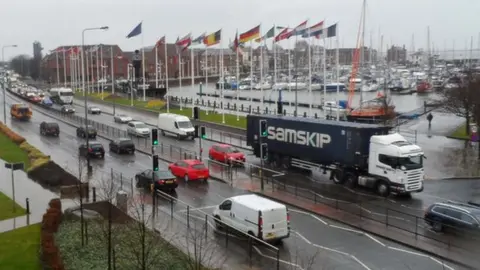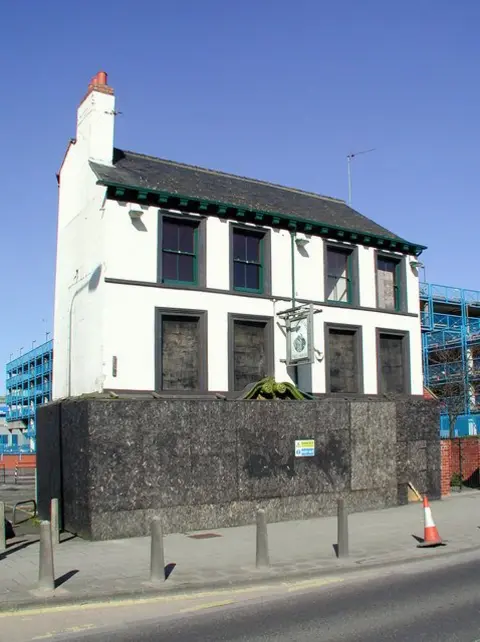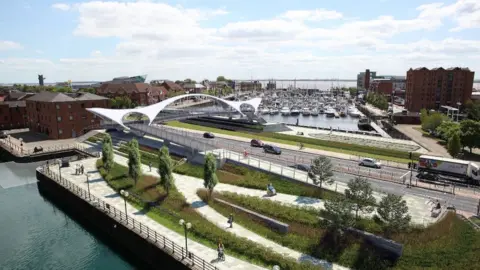Hull road scheme: 19,000 bodies to be exhumed for A63 upgrade
A multimillion-pound scheme to improve a key route into Hull could be delayed by the exhumation of 19,000 bodies from a cemetery.
Highways England said the bodies must be exhumed from Trinity Burial Ground before work could start on the improvements at Castle Street.
The estimated cost of the work has risen from £250m to £392m.
A Grade II-listed pub, major sewer and historic ship will also have to be moved.
It is thought the exhumation will be the largest outside London, with 130 archaeologists needed each month.
Highways England said the bodies would later be reburied in an unaffected part of the burial ground, which was used between 1783 and 1861.
It proposed the redevelopment of the mile-long stretch of A63 at Castle Street in 2013, saying it would lead to improved safety, better access to the docks, city centre and marina, and would ease traffic congestion.
 Balfour Beatty
Balfour BeattyOnce completed, it would mean better safety and access between the docks, city centre and marina, and ease traffic congestion, it said.
The work involves:
- lowering the road at the Mytongate junction with Ferensway and Commercial Road, creating an underpass where traffic can continue to flow
- widening the eastbound carriageway between Mytongate and Market Place
- building two footbridges, at Porter Street, and in front of Princes Quay shopping centre to allow pedestrians to cross to the marina
 Geograph/Paul Glazzard
Geograph/Paul GlazzardHighways England said the work had been met with many other challenges, including removing a major sewer to accommodate the Mytongate underpass and filling in a small section of Hull marina to accommodate the footbridge.
The historic Spurn Lightship will also have to be moved and the Grade II-listed Earl de Grey pub knocked down and repositioned, following a recommendation by Historic England.
Work was due to start on the Princes Quay footbridge in time for Hull City of Culture 2017 but it will now start in October. Other work will begin in 2020 and finish in 2025.
 Highways England
Highways England